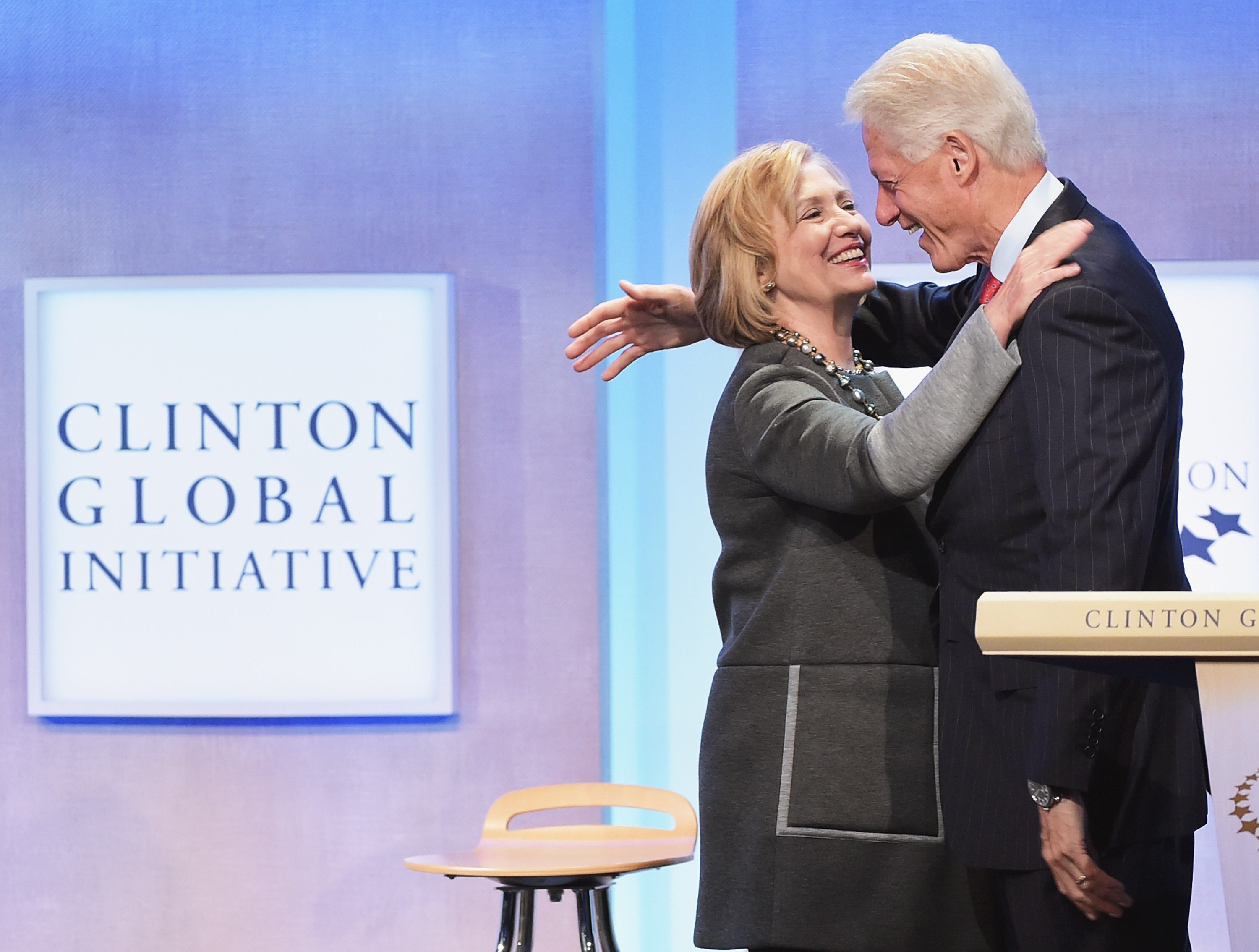When a bribe isn't a bribe
The many agendas of the Clinton Foundation


A free daily email with the biggest news stories of the day – and the best features from TheWeek.com
You are now subscribed
Your newsletter sign-up was successful
The game is called "pay to play." Want face time with government officials, so you can press them for favors or support for specific policies? Then write a nice fat check to their re-election campaign, favorite super PAC, or in the case of Bill and Hillary Clinton, their charitable foundation. By all accounts, the Clinton Foundation has done noble work fighting AIDS and promoting economic development around the world. But it has also employed many of the Clintons' loyalists and aides, as well as connecting Bill with deep-pocketed businessmen, corporations, and foreign governments — some of whom then paid Bill personally for consulting work and speeches. Was it corrupt for Hillary, then secretary of state, to show her appreciation by meeting with foundation donors and making some phone calls on their behalf? Not according to the U.S. Supreme Court.
Just two months ago, the court voted 8-0 to throw out the corruption conviction of former Virginia Gov. Bob McDonnell, who had pocketed about $175,000 in gifts and loans from a favor-seeking business owner. It may be "distasteful" that the grateful McDonnell set up meetings for the businessman, Chief Justice John Roberts wrote, but it wasn't illegal. To be guilty of taking a bribe, the court ruled, an official has to explicitly agree to perform an "official act" in exchange for money — that is, make a decision on some pending matter in his power. By this standard, politicians have to be morons to be convicted of corruption; they have to get caught saying, "I'll get that policy changed, but only if you give me money." A smart politician knows how to flatter donors and connect them with other powerful people — to create the perception that their money has bought something of value — without crossing the line. Nobody ever said the Clintons — who've reported more than $100 million in income since 2001 — weren't smart.
A free daily email with the biggest news stories of the day – and the best features from TheWeek.com
The Week
Escape your echo chamber. Get the facts behind the news, plus analysis from multiple perspectives.

Sign up for The Week's Free Newsletters
From our morning news briefing to a weekly Good News Newsletter, get the best of The Week delivered directly to your inbox.
From our morning news briefing to a weekly Good News Newsletter, get the best of The Week delivered directly to your inbox.
William Falk is editor-in-chief of The Week, and has held that role since the magazine's first issue in 2001. He has previously been a reporter, columnist, and editor at the Gannett Westchester Newspapers and at Newsday, where he was part of two reporting teams that won Pulitzer Prizes.
-
 The world’s most romantic hotels
The world’s most romantic hotelsThe Week Recommends Treetop hideaways, secluded villas and a woodland cabin – perfect settings for Valentine’s Day
-
 Democrats push for ICE accountability
Democrats push for ICE accountabilityFeature U.S. citizens shot and violently detained by immigration agents testify at Capitol Hill hearing
-
 The price of sporting glory
The price of sporting gloryFeature The Milan-Cortina Winter Olympics kicked off this week. Will Italy regret playing host?
-
 The billionaires’ wealth tax: a catastrophe for California?
The billionaires’ wealth tax: a catastrophe for California?Talking Point Peter Thiel and Larry Page preparing to change state residency
-
 Bari Weiss’ ‘60 Minutes’ scandal is about more than one report
Bari Weiss’ ‘60 Minutes’ scandal is about more than one reportIN THE SPOTLIGHT By blocking an approved segment on a controversial prison holding US deportees in El Salvador, the editor-in-chief of CBS News has become the main story
-
 Has Zohran Mamdani shown the Democrats how to win again?
Has Zohran Mamdani shown the Democrats how to win again?Today’s Big Question New York City mayoral election touted as victory for left-wing populists but moderate centrist wins elsewhere present more complex path for Democratic Party
-
 Millions turn out for anti-Trump ‘No Kings’ rallies
Millions turn out for anti-Trump ‘No Kings’ ralliesSpeed Read An estimated 7 million people participated, 2 million more than at the first ‘No Kings’ protest in June
-
 Ghislaine Maxwell: angling for a Trump pardon
Ghislaine Maxwell: angling for a Trump pardonTalking Point Convicted sex trafficker's testimony could shed new light on president's links to Jeffrey Epstein
-
 The last words and final moments of 40 presidents
The last words and final moments of 40 presidentsThe Explainer Some are eloquent quotes worthy of the holders of the highest office in the nation, and others... aren't
-
 The JFK files: the truth at last?
The JFK files: the truth at last?In The Spotlight More than 64,000 previously classified documents relating the 1963 assassination of John F. Kennedy have been released by the Trump administration
-
 'Seriously, not literally': how should the world take Donald Trump?
'Seriously, not literally': how should the world take Donald Trump?Today's big question White House rhetoric and reality look likely to become increasingly blurred
